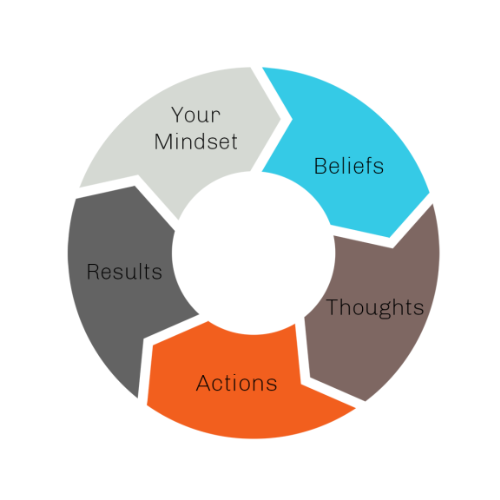Goal-Setting, Simplified
Goal-setting is one of those things that seems like it should be very simple, but can often cause anguish and aggravation. Even worse, if it’s not done productively it can convince us that we’re doomed to failure and prompt us to give up on our dreams forever.
The number one mistake that most people make when goal-setting is reaching too high right from the get-go. There is nothing wrong with reaching high – in fact I encourage it. However, what most people fail to consider is the PROCESS of growth and development that must take place between where they begin and where they’d like to end up.
You wouldn’t expect an infant to set a goal to climb Mt. Everest, would you? Perhaps later when that infant has learned how to crawl and walk, and after he has grown into a man and strengthened his body and conditioned himself to deal with the harsh elements, and after he has tackled smaller and less dangerous mountains – yes. But not before the necessary growth, development and preparation have taken place.
Many people try to make a similar large leap when they set their goals. They want to transform themselves from a position of lack and fear to a position of power and success in a short period of time, and it’s just not likely. (Notice I didn’t say it was impossible! Stranger things have happened, but let’s just say it’s a rarity.)
The good news is that every large goal can be broken down into smaller, more manageable goals. If your goal is to climb Mt. Everest, you will first need to gain some experience mountain climbing, get into the best shape of your life, and so on. (I will assume that you are not an infant, so you have already mastered crawling, walking, and growing into an adult. ?)
Now, take another look at those smaller goals I listed above: gain mountain-climbing experience and get into great shape.
Even those steps can be broken down into smaller goals, such as buying some books or taking some classes to educate yourself on hiking and mountain climbing; joining a gym, starting a healthy eating plan, etc.
Successful goal-setting is as easy as learning how to identify the mini-goals that compose each larger goal, and focusing your efforts on THOSE FIRST. That doesn’t mean you can’t keep your larger goal in mind and keep pushing yourself to reach it. However, giving most of your attention to the smaller steps along the journey will result in less stress and much quicker progress.
Take another look at the vision you wrote for your life, and then ask yourself how this big achievement might be broken down into smaller steps. If you can come up with some reasonable action steps you can take immediately, you will gain confidence with each small achievement you make. As your confidence grows and you gain experience and knowledge, your action steps will automatically become bigger and bolder, and so will your results.
While you may be tempted to set a timeframe for accomplishing your goals, I would advise caution. It’s okay to have an idea about when you will reach your goals because it can definitely keep you motivated and focused. But it can also backfire if you don’t see results quickly enough and make you give up out of sheer impatience.
What I said in the segment about expectations also applies here. Be reasonable and balanced about your goals. Just like you can’t expect to make a giant leap from “here” to “there”, you also can’t expect to accomplish everything overnight. There are two good ways to keep your goal-setting balanced: Focus on the sense of accomplishment you get from every step you take. Rather than pinning your satisfaction only on the big goal you have in mind, allow yourself to feel good about the progress you’re making toward that goal. Feel proud about the great job you’re doing and really allow yourself to enjoy the journey.
Focus on the sense of accomplishment you get from every step you take. Rather than pinning your satisfaction only on the big goal you have in mind, allow yourself to feel good about the progress you’re making toward that goal. Feel proud about the great job you’re doing and really allow yourself to enjoy the journey. Don’t worry about the time frame. This one is definitely more challenging, but it’s also very freeing! Instead of setting a timeframe, simply commit to working steadily and enthusiastically on each small action step. Don’t buy into impatience if you don’t see results immediately – in fact, let the ACTIONS themselves be their own rewards. Feel good that you are strengthening your self-discipline and growing more completely into the person you were meant to be. Believe it or not, it’s very rewarding to take this type of attitude.
Don’t worry about the time frame. This one is definitely more challenging, but it’s also very freeing! Instead of setting a timeframe, simply commit to working steadily and enthusiastically on each small action step. Don’t buy into impatience if you don’t see results immediately – in fact, let the ACTIONS themselves be their own rewards. Feel good that you are strengthening your self-discipline and growing more completely into the person you were meant to be. Believe it or not, it’s very rewarding to take this type of attitude.
Again, do what you feel is best for YOU.

